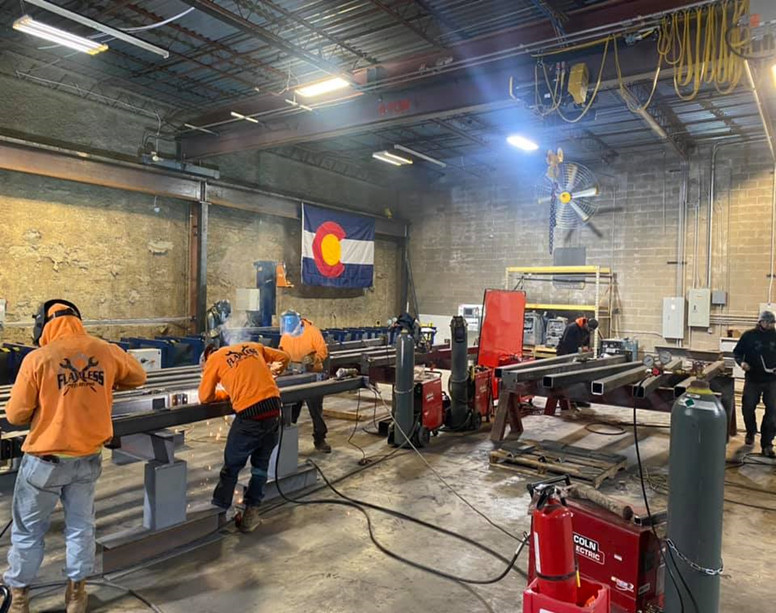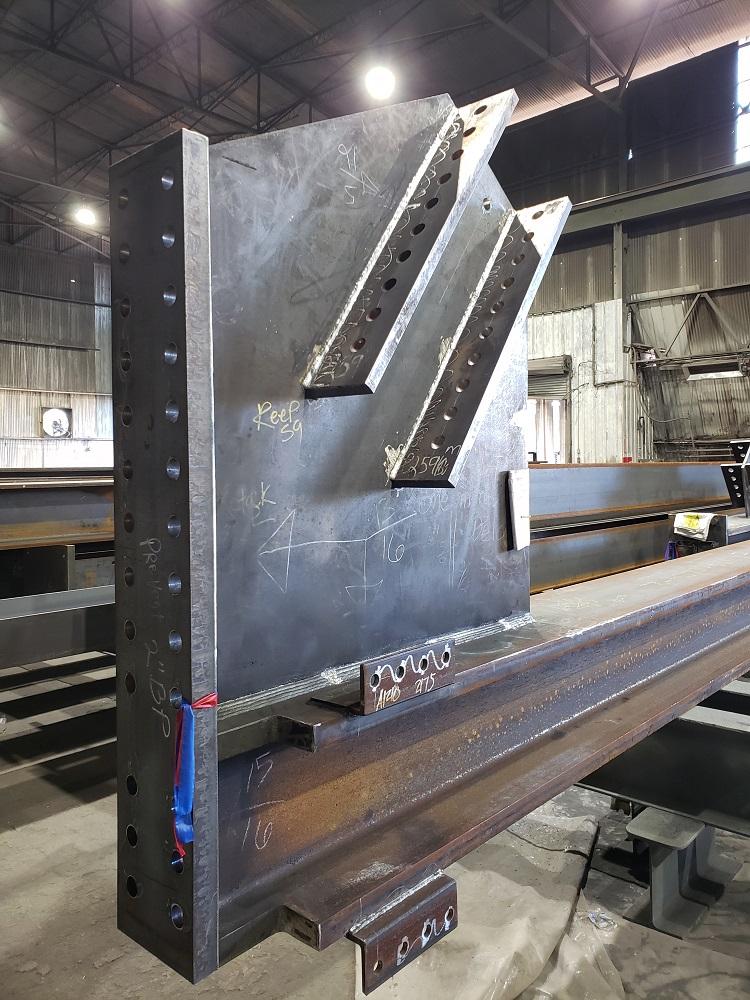Steel Fabrication Melbourne: Craftsmanship Fulfills Advancement
Steel Fabrication Melbourne: Craftsmanship Fulfills Advancement
Blog Article
The Ultimate Handbook on Custom-made Steel Construction Solutions for Structural Projects
In the world of structural tasks, the importance of personalized steel fabrication remedies can not be overstated. From the fundamental understanding of steel fabrication fundamentals to the detailed process of picking the most appropriate materials, every step in this trip plays a pivotal function in the ultimate success of a project. As we navigate via the complexities of style considerations, manufacture processes, and top quality control actions, a thorough manual acts as a directing light for specialists seeking quality in steel construction options. Remain tuned to discover the understandings that can revolutionize the way structural tasks are come close to and implemented.
Comprehending Personalized Steel Construction Basics
Looking into the principles of customized steel fabrication gives insight right into the elaborate procedure of changing raw steel into tailored structural elements. Custom-made steel fabrication is a specific manufacturing technique that includes cutting, shaping, and assembling steel materials to create unique frameworks according to particular project requirements. Recognizing the basics of custom-made steel manufacture is essential for ensuring the successful execution of structural jobs.
The procedure usually begins with the analysis of job specs and style demands. This first stage involves thorough preparation and cooperation between fabricators, designers, and designers to identify the most ideal technique for fabricating the steel components. Accuracy is crucial throughout the fabrication procedure, as even minor variances can influence the structural stability of the final product.
Different methods, such as cutting, welding, and shaping, are used to transform raw steel into the wanted architectural aspects. Knowledgeable makers utilize innovative equipment and devices to guarantee precision and consistency throughout the manufacture procedure. Quality control steps are applied to confirm the integrity of the made parts prior to they are assembled on-site, ensuring compliance with market requirements and project specs.
Selecting the Right Steel Products

First and foremost, the kind of architectural project and its specific demands play a critical function in establishing one of the most ideal steel materials. Elements such as the load-bearing capability, environmental conditions, and desired lifespan of the structure will dictate the grade and sort of steel that need to be used.
In addition, the physical residential properties of the steel, including weldability, strength, and ductility, should align with the job's demands to ensure optimal performance and resilience (steel fabricators melbourne). Furthermore, considerations such as rust resistance, cost-effectiveness, and schedule of the steel products ought to go to this web-site likewise be useful content taken into consideration throughout the choice procedure
Layout Considerations for Structural Tasks
Architectural tasks demand thorough interest to develop considerations to guarantee both functionality and safety and security are prioritized throughout the building and construction process. When it comes to developing structural jobs, a number of key variables have to be taken into account to assure the success of the endeavor. By carefully taking into consideration these facets throughout the design phase, designers and engineers can guarantee the architectural task's success from conception to conclusion.
Enhancing Manufacture Processes for Efficiency

Furthermore, executing lean production principles can dramatically boost effectiveness in steel construction. By reducing waste, enhancing process, and enhancing communication in between various teams associated with the manufacture process, jobs can be completed a lot more quickly and with higher high quality standards.
In addition, developing an efficient manufacturing schedule and process can assist in prioritizing tasks, assigning resources properly, and conference task target dates promptly. By having a clear plan in area and consistently monitoring development, any type of possible bottlenecks or delays can be identified and dealt with quickly, ensuring smooth and efficient construction procedures for architectural projects.
Quality Assurance and Task Management in Steel Construction
To make sure the effective implementation of steel fabrication tasks, careful quality assurance actions and reliable task monitoring techniques are vital components in preserving precision and meeting client expectations. Quality control in steel fabrication entails rigorous assessments at numerous phases of the fabrication process to confirm compliance with task specs and market requirements. This includes material testing, dimensional checks, and weld assessments to ensure architectural integrity and safety.
Job management plays an important duty in working with the various aspects of steel manufacture projects, such as scheduling, source allocation, and interaction among staff member. A distinct job plan with clear goals, milestones, and timelines aids to keep track of progression and attend to any type of prospective concerns proactively. Efficient interaction between all stakeholders, including customers, specialists, engineers, and producers, is essential for ensuring that the project proceeds efficiently and satisfies the preferred high quality criteria.
Final Thought
To conclude, custom-made steel fabrication plays an important role in structural projects by offering customized solutions using the best materials and design considerations. Efficiency in construction procedures, quality assurance, and efficient task monitoring are essential for successful end results. By recognizing the fundamentals of customized steel fabrication and implementing streamlined procedures, task teams can supply high-grade and sturdy structures that meet the particular demands of their clients.
Customized steel fabrication is a specific production technique that entails cutting, shaping, and assembling steel materials to create unique structures according to details check out this site job demands.To make sure the successful execution of steel manufacture jobs, thorough quality control steps and reliable job management techniques are important elements in keeping accuracy and meeting customer assumptions. Quality control in steel fabrication involves strenuous examinations at different phases of the manufacture procedure to verify compliance with project specifications and market criteria (steel fabricators melbourne).Project administration plays a crucial duty in coordinating the various facets of steel manufacture projects, such as scheduling, resource allocation, and communication amongst team participants.In verdict, customized steel fabrication plays a critical role in structural projects by supplying tailored remedies making use of the right products and design considerations
Report this page